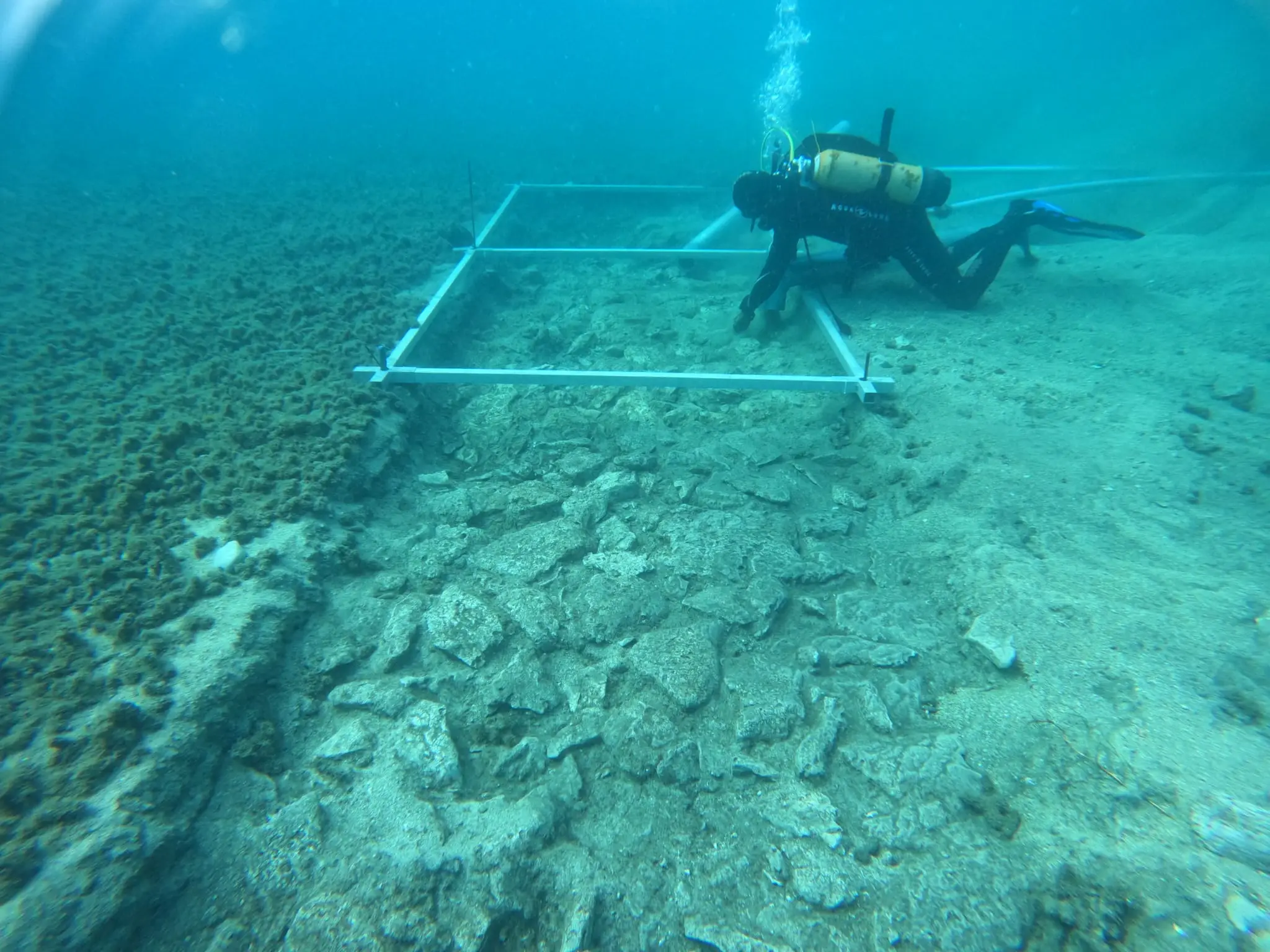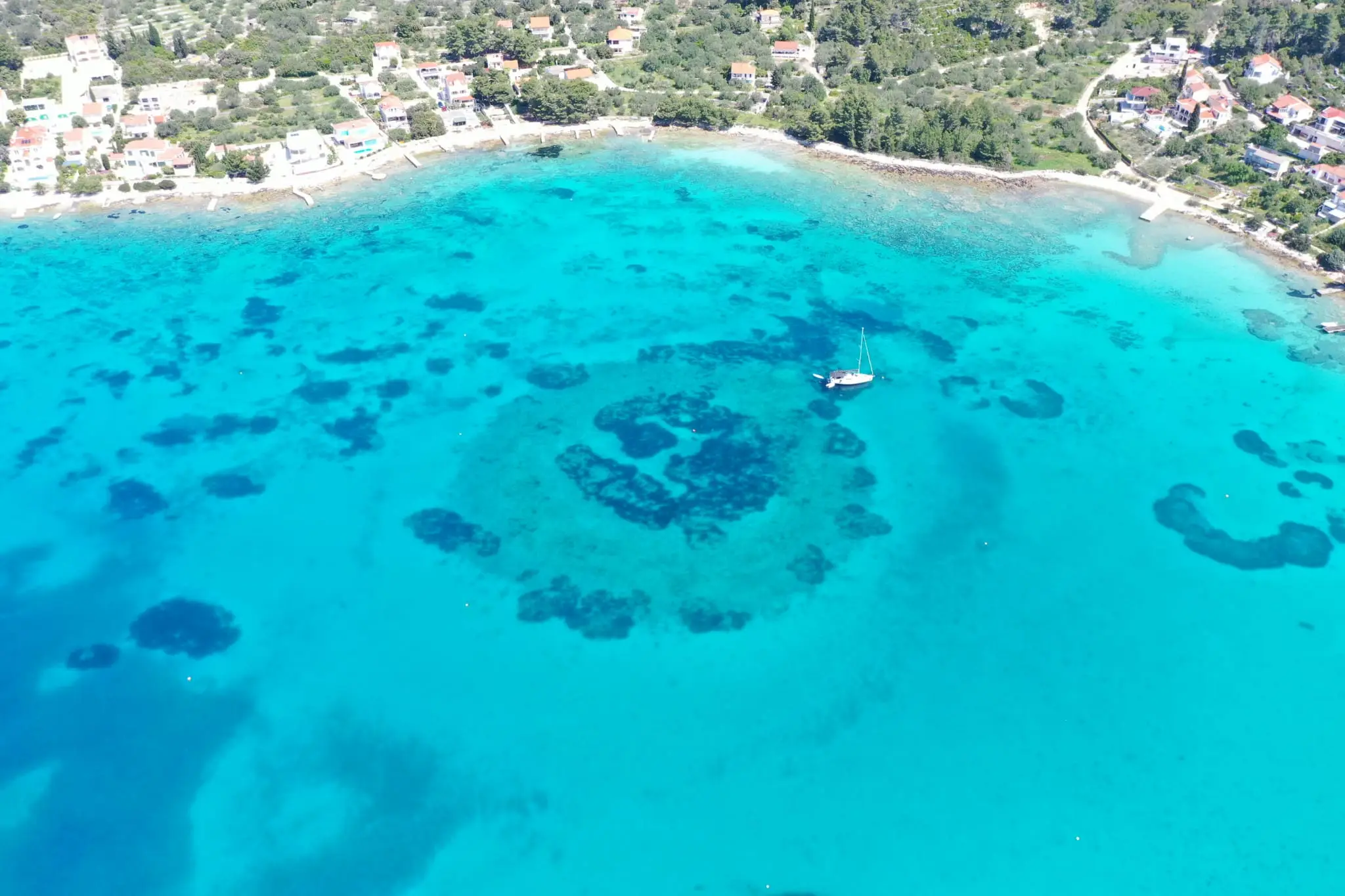Archaeologists have found a prehistoric highway at the bottom of the Adriatic Sea off the coast of a Croatian island, 7000 years after it was built.
The Stone Age road may once have linked a now-submerged Neolithic site to the island of Korčula.
Korčula was previously attached to mainland Croatia until sea levels rose at the end of the last Ice Age (around 12,000 BC) forming the island about 8,000 years ago.
Advert
The 13ft-wide road was believed by archaeologists to have been built by an ancient Hvar culture.
Archaeologists made the discovery 13-16ft beneath the surface of the Mediterranean Sea after looking at satellite images of the water around the submerged Neolithic site of Soline, off the coast of Korčula which forms part of the Adriatic archipelago.

The archaeologists behind the discovery surmised that the ancient road may once have linked the island and the now submerged site when it was a human-made landmass.
After seeing the satellite images, archaeologist Mate Parica, of the University of Zadar, wanted to get a closer look and went on a dive to the site with colleagues where they came across the fascinating walls of an ancient settlement.
It appeared to be connected to the main island by a narrow strip of land.
"The fortunate thing is that this area, unlike most parts of the Mediterranean, is safe from big waves as many islands protect the coast," Parica told Reuters at the time of the discovery in 2021.
"That certainly helped preserve the site from natural destruction."

It's believed that the highway was built as a way to get from Soline to Korčula by the Hvar-Lisičići culture - a Neolithic culture in the eastern Adriatic coast named after the island.
Radiocarbon analysis of the Soline settlement and the preserved wood found frozen in time there suggested that it dates back to an estimated 4,900 BC.
Flint blades, stone axe blades and remains of sacrifice were also found at the site.
The University of Zadar said in a statement on a Facebook post: "People walked on this [road] almost 7,000 years ago."
Despite being buried beneath millennia of silt, archaeologists said it was apparent that stone slabs were carefully laid to provide safe passage back and forth.
Facebook followers were excited about the discovery with one saying: "Please post more, this is so interesting finding these ancient settlements or cities and the learning of the people who walked those roads."
Topics: News, Science, World News, Weird
